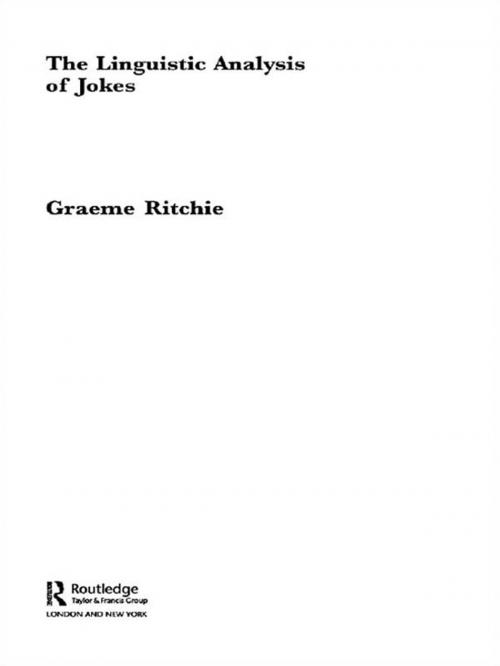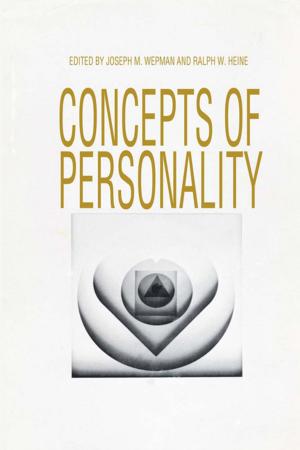| Author: | Graeme Ritchie | ISBN: | 9781134390915 |
| Publisher: | Taylor and Francis | Publication: | March 1, 2004 |
| Imprint: | Routledge | Language: | English |
| Author: | Graeme Ritchie |
| ISBN: | 9781134390915 |
| Publisher: | Taylor and Francis |
| Publication: | March 1, 2004 |
| Imprint: | Routledge |
| Language: | English |
This book starts from three observations. First, the use of humour is a complex, puzzling, and idiosyncratically human form of behaviour (and hence is of scientific interest). Second, there is currently no theory of how humour works. Third, one useful step towards a theory of humour is to analyze humorous items in precise detail, in order to understand their mechanisms.
The author begins by considering how to study jokes rigorously: the assumptions to make, the guidelines to follow and the pitfalls to avoid. A critique of other work on humour is also provided. This introduces some important concepts, and also demonstrates the lack of agreement about what a theory of humour should look like. The language devices used in various jokes, such as puns or humour based on misinterpretation, are analysed in detail. The central part of the book develops, and demonstrates, proposals for how best to analyze the workings of simple jokes. Finally, the author makes some general suggestions about the language devices that seem to be central to the construction of jokes.
The Linguistic Analysis of Jokes will be invaluable for researchers and advanced students of humour research, linguistics and cognitive science.
This book starts from three observations. First, the use of humour is a complex, puzzling, and idiosyncratically human form of behaviour (and hence is of scientific interest). Second, there is currently no theory of how humour works. Third, one useful step towards a theory of humour is to analyze humorous items in precise detail, in order to understand their mechanisms.
The author begins by considering how to study jokes rigorously: the assumptions to make, the guidelines to follow and the pitfalls to avoid. A critique of other work on humour is also provided. This introduces some important concepts, and also demonstrates the lack of agreement about what a theory of humour should look like. The language devices used in various jokes, such as puns or humour based on misinterpretation, are analysed in detail. The central part of the book develops, and demonstrates, proposals for how best to analyze the workings of simple jokes. Finally, the author makes some general suggestions about the language devices that seem to be central to the construction of jokes.
The Linguistic Analysis of Jokes will be invaluable for researchers and advanced students of humour research, linguistics and cognitive science.















